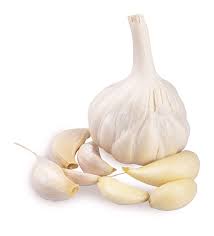
Research Confirms Garlic’s Potent Anti-Cancer Properties
Garlic, a food consumed by humans for millennia, is widely acknowledged for its health benefits. The primary active compound in garlic is allicin, a sulfur compound produced in the presence of oxygen and a specific enzyme in garlic. An increasing body of research confirms that garlic contains a variety of active components that can effectively inhibit the occurrence and development of cancer.
Epidemiological studies indicated a significant association between garlic consumption and a reduced risk of colorectal cancer, but evidence for stomach, breast, and prostate cancer is inconsistent. The studies also suggested that the presence and potency of garlic’s active component, organosulfur, are related to garlic’s preparation and form. Researchers recommend further epidemiological and molecular studies to explore the impact of garlic on blood sugar levels and its antioxidant mechanisms.
The study further suggested that certain dietary and genetic factors can impact the efficiency of the H2S and NO signaling pathways, contributing to the development of hypertension. Additionally, sulfur deficiency may play a crucial role in the development of hypertension, and supplementation with organosulfur compounds through garlic consumption can effectively alleviate its symptoms.
In short, the allicin found in garlic exhibits the following five beneficial effects:
- Anti-cancer: Allicin can inhibit the growth and metastasis of cancer cells and enhance the immune system’s function.
- Vasodilator and reduces blood pressure: Allicin can relax blood vessel walls, lower blood pressure, and improve blood circulation.
- Improves insulin sensitivity and controls blood sugar: Allicin can promote the secretion and action of insulin, thereby reducing blood sugar levels. It is beneficial for individuals with diabetes.
- Improves sexual function: A vasodilator, allicin can alleviate symptoms of male impotence and enhance sexual function, as impotence is often associated with poor blood circulation.
- Anti-inflammatory and antioxidant: Allicin can combat damage from free radicals, safeguarding the functions of the liver and kidneys.
In addition to allicin, garlic also contains other essential nutrients such as vitamin C, various sulfur compounds, and cysteine, which are beneficial for health. Cysteine can be converted into glutathione, the most important antioxidant in our body.
How to Properly Consume Garlic
Now that we have delved into the numerous benefits of garlic, let’s talk about the things to keep in mind when consuming it. Otherwise, it might affect its effectiveness and potentially lead to side effects. Here are some considerations:
- Avoid excessive processing: Overcooking garlic by boiling, roasting, or steaming for too long can damage its active components and diminish its benefits. It is best to consume it raw or lightly sautéed.
- Chop or crush it: Chopping or crushing garlic is essential to generate sufficient allicin. Let it rest in the open for five to 10 minutes before consumption for optimal benefits.
- Avoid overeating: Generally speaking, eating one to four cloves of fresh garlic per day is sufficient. Overconsumption may lead to adverse effects such as bad breath, gastrointestinal irritation, and allergic reactions.
- Be cautious eating it if you are one of these people: Those prone to gastrointestinal ulcers, bleeding tendencies, on anticoagulant medications, or preparing for surgery should limit their intake of garlic. Garlic possesses anticoagulant effects, which may exacerbate bleeding. Pregnant and breastfeeding women should also exercise caution, as garlic may affect the taste of breast milk, potentially impacting the health of the fetus or infant.
- Garlic supplements as an alternative: If you are not fond of eating garlic, you can opt for garlic supplements, available in various forms and doses. However, it is crucial to prioritize quality and safety. It is advisable to use them under the guidance of a doctor.
In summary, garlic is a healthful food with various benefits, including cancer prevention, blood sugar reduction, and improved sexual function. Incorporating garlic into our diet in moderation can contribute to overall well-being. However, it is crucial not to rely solely on one type of food, as diet is just one of the many factors that influence health; paying attention to other health habits like exercise, sleep, and stress is equally vital for promoting health and longevity.
Source: Jingduan Yang




